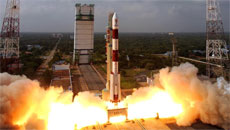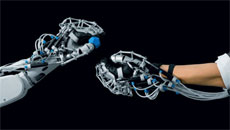Eating less or having diets low in nutrients not only helps laboratory animals extend lifespan, it may also help humans to keep at bay diseases of old age such as cancer, an evolutionary theory shows.
Dietary restriction leads to increased rates of cellular recycling and repair mechanisms in the body, showed the research by Margo Adler, an evolutionary biologist at University of New South Wale (UNSW), Australia.
The theory is that this effect evolved to help animals continue to reproduce when food is scarce; they require less food to survive because stored nutrients in the cells can be recycled and reused.
It is this effect that could account for the increased lifespan of laboratory animals on very low-nutrient diets, because increased cellular recycling reduces deterioration and the risk of cancer.
"This is the most intriguing aspect, from a human health stand point," Adler said.
"Although extended lifespan may simply be a side effect of dietary restriction, a better understanding of these cellular recycling mechanisms that drive the effect may hold the promise of longer, healthier lives for humans," she said.
It may be possible in future, for example, to develop drugs that mimic this effect, the study implied.
The findings appeared in the journal BioEssays.


